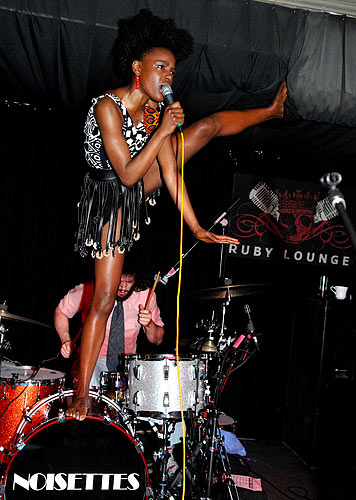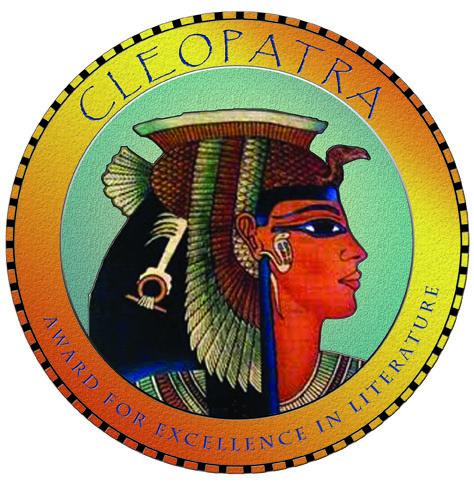Tech Book: PW Talks to Kevin Kelly
PW talks to author and Wired cofounder Kevin Kelly about what technology wants from the book business
Nov 01, 2010
In his new book, Kevin Kelly, author of What Technology Wants puts forth a unique view of technology as a living, evolving entity, which he calls "the Technium." The Technium, he notes, wants to grow. It wants to improve. And it will use people as its agents—willing or not. What Kelly hopes to show in What Technology Wants is how to go with the flow—how to learn from the Technium's desires, and to benefit.
Kelly has been in the inner circle of the tech world for a long time. Before cofounding Wired in 1992, he wrote and edited for the Whole Earth Review, eventually becoming its editor. The Review was a journal of “unorthodox technical news,” Kelly says, doing groundbreaking reporting on technology trends, such as virtual reality, work that eventually led Kelly to other pursuits on the cutting edge of technology. Today, he maintains a number of blogs and resources at KK.org, including Cool Tools, which surveys useful tools of all kinds, ranging from things like the Gator Machete Junior to GotLogos, a Web site that lets you create instant personal logos. He also maintains a busy consulting and speaking schedule.
With publishing approaching a technological crossroads, we caught up with Kelly, who has been spending the year thinking and writing about e-books—as well as reading them—to talk about his new work, the effects of technology, e-books, and the ways that publishing has historically resisted, and slowly accepted, technology’s advances.
It seems as if we caught you at a good time—not only do you have a new book, What Technology Wants, you’re dedicating the next year to thinking about e-books. Can you talk a little about that?
I’m really happy with what Penguin has done with What Technology Wants. And as an artifact, it’s beautiful. But this is probably my last paper-native book, because the attention has fallen elsewhere. That’s basically the only reason—because people, young people especially, are spending more and more of their time on things that are happening on screens, and if you want to reach people, that’s really where you should be looking. It’s not for a lack of love for books, it’s just necessary because the center of culture has moved. So I’m thinking about what that shift means, and, I have to say, I don’t have a magic formula. I’m like everyone else. I think it’s very uncertain what this future will actually look like and how it works. And while it’s no surprise to anyone that things are changing, what I think is kind of surprising is that, after 20 years of talking about it, it’s finally happening.
What kinds of things are you thinking about and exploring?
I’m thinking about what remains of a book when you take away paper. I’m pretty sure there’s something there—that the concept of a book exists outside of paper. The issue, though, is not how people are going to enjoy books. The issue is more about business models. For readers, this is the best time in history. There’s never been more selection, more media types, or quality books. There’s never been more backlist books available. This is a high point for readers. For publishers, though, it is a low point, as their businesses are in transition.
But I’m very optimistic, because in my research, money follows attention. Wherever attention flows, money follows. So, I have no doubt that if it is screens that are getting attention, money will flow to screens. The question is, of course, what models—will it be advertising-based, which is fixed around attention, or an app-based thing, which the iPad seems to suggest is viable, or maybe a subscription model, which Netflix has proven works for movies? I expect it’s going to be all of the above.
Another one of the big questions is who will get that money, as traditional industry roles change.
Yeah, yeah—but I want to emphasize that for at least 20 years, this whole perplexity has been there. It’s really nothing new. I do think there are a lot of functions publishers won’t be handling anymore. But I don’t think publishers and labels and studios are going away. There is a financing aspect which I think is still necessary. And there’s also curation, and finding young, new talent, and bringing it forward and saying, “This work is worth paying attention to.”
I did a calculation, and I figured that you could take every single bit of music that has ever been recorded, and you could fit it onto a six-terabyte disk now being sold on Amazon for $600. But once you have everything on your disk, the question is still: what do I listen to next? So I think the role of publishers in guiding attention and cultivating talent is necessary and is valued, and that people in the long-term will pay for that.
Certainly, everyone who got that six-terabyte disk full of music would listen to it in different ways, so you’d need curators to create a shared experience that people could actually talk about, yes?
Right—and there’s not going to be a single filter that will move you through it; there will be many. There obviously can be collaborative filtering done by the mob, by the hive-mind. Culture needs aggregators, like an Amazon or a Netflix. And I also think that there will be these, agencies, I want to call them—the publishers, studios, and labels of the world—to work with artists, that get things done, even if they aren’t necessarily the ones who are distributing the actual works. I think publishers have to get out of the distribution business in a certain sense and get more into the content-enabling function, where they’re partly helping to finance stuff and making things come about in a high-quality way. Distribution is out of their hands now.
I’m curious to know what you think about the various devices that we’re reading e-books on. Do these things seem to you like transitional devices?
Yes, and that’s actually a very good word for them. I believe they are transitional devices. First of all, I’m a relative pluralist in the sense that I really do think that we’re moving away from the kind of industrial economy that fostered a lot of the uniformity, with sort of one business model, one builder, and preferred methods of manufacturing, value chain lines, and all that stuff.I think this sort of network-oriented, webby economy that we have coming will mean that there’s more than one business model for e-books. I don’t think we’re going to converge on a single e-book format, and all the e-readers we have right now are just hinting at the different directions that they can go in. I also think there’s going to be more types of devices because different people read differently, and there are also going to be different kinds of books, and not just say, a fictional narrative vs. a textbook, but kinds of books we haven’t even invented yet. To me, that’s the most exciting part—all the new forms of books that will be made possible by technology.
What do you think of the iPad?
It seems really great for magazine articles, and I am reading books on it, too. But it’s a little heavy for me for ideal book reading. But for article reading, or for a couple of hours, it seems really great. It’s also very good with photos and stuff. I’m really having a good time with it. It has a very smooth prose experience and people seem to be willing to pay for apps on it, and that suggests that there’s a business model for books that are really sweetened for the iPad. With its interface, the color, and the ability to be kind of connected to the rest of the world, there’s a sense that you can maybe do things with books other than just straight black-and-white text. And we now have evidence that people are willing to pay for books. I like the Wired app, for example, and [it] has done very well in terms of money. I feel intuitively that the iPad is something that can be conjured with and built upon.
How about the Kindle?
I think for a first step, they’ve done really well. I think in the long-term, they have to broaden their vision of what a book is in terms of how people interact with it. I’m a little frustrated with the Kindle because I can’t yet do all the things I want with text. I work with text in terms of extracting. I want to be able to easily manipulate it, move [it] around, e-mail it, forward, all this other kind of stuff. And that’s not quite there yet with the Kindle—or with the iPad, by the way. Some of the fault there lies with publishers. Some people really get kind of hysterically paranoid about people messing with their texts and afraid that it’s going to get away from them somehow. I think the inventors of these devices are aware of this and really want to do more, but are constrained by publishers who are afraid of what might happen if texts become too liquid.
You said this would likely be your last print-originating book, but I wonder what you envision for your next book—a discrete text that doesn’t change? a text that partly lives on the Internet and partly as discrete text?
I think the answer is all of the above. I believe there will be authors who continue to write, say, mystery novels that will for a lot of people be very satisfying. People are still painting with oil paints, even though that’s not the center of culture anymore, and if you look at the number of oil paintings or painters, there’s still a lot of them. I think there will be very traditional stories, textual stories told for a long time. At the same time, I’m looking forward to a new kind of book, where moving images or graphic visualization is an integral part. And there will be documents like Wikipedia and other things that are completely in flux, that are constantly morphing and changing and there is no definitive version. All these things are happening right now.
To what extent do you think publishers have been evolving with technology and to what extent do you see them resisting it?
From my perspective, I would say publishers have been resisting far more than they’ve been cooperating. But again, this is not new or a surprise. All these changes have been resisted for more than 20 years. We have had 20 years to actually prepare and innovate and change the business, but all along publishers have been fighting these changes until the last minute, when they can no longer resist it.
Part of that is because the early experiments didn’t make money right way. But that’s not how innovation works. And I think they’re still resistant over this idea of how to protect copies of things. In my view, the copies are just completely valueless at this point, and they have to let the copies flow. Once they do that, then they can begin to really move into the new era and capture, generate, and create some new value. But as long as they hold onto this idea that copies are precious, they’re just resisting change.
You write in the preface that you try to keep technology at arm’s length, though it sure sounds like you are surrounded by a lot of technology. Can you talk about some of the things you see technology empowering or changing?
One of the things that I think has really been kind of fun is that we’re really exploring the power of sharing, and what that can really be when amplified by technology. We’re really exploring how far this can go. And in every case, we’re finding out that it can go a lot further than we think. When Wikipedia started—it was called Newpedia at the time—I was trying it out and I really didn’t think it had any chance of working. It just seemed to me theoretically impossible. But now it works, and I think that is an example of how trying and engaging with technology is really the only way to evaluate it.
I tried Twitter. It didn’t work for me, but I am aware that it works for other people, and it may work for me later on. But it’s not necessary to do all things. I think with e-books, I’m trying stuff, and it may work for some people, it may not work for others, and that’s fine. I think we’re starting to realize that you have to be able to say “no” to some technologies, to learn how to try something and give up and not feel bad about it, but also not to try to block or inhibit other people from using or trying technology that may work for them.
As a technologist, any advice or observations you’d offer the book industry?
If I had to give some advice, first, I’d tell publishers to look to where people are spending their attention, and that’s where you want to be. Second, look where people are doing things for free. Because you can then explore what starts for free and try to make something valuable. And third, let the copies go and work on producing something that can’t be automated or copied easily. That’s where the value is.
It takes a leap of faith, but I believe this is sort of like the food pyramid. At the bottom is always user-created stuff, and that produces a platform, a kind of chain of stuff so that these higher, charismatic, longer-living entities can survive. Without that kind of bottom, it’s really hard to have the other things. If we think about what are the great things that will last over time, it’s not going to be those funny YouTube clips. The things that take effort and intelligence to produce are the things that will survive for a hundred years.
So, don’t be distracted by all this stuff being produced that may not involve you, the publishers. I think there’s a tendency to cringe that there is all this user-produced stuff, and it’s all free. That stuff is a necessary part of the ecology. It does not diminish the value of what you produce. In fact, it increases your value.###









 Sharing this page ...
Sharing this page ...





